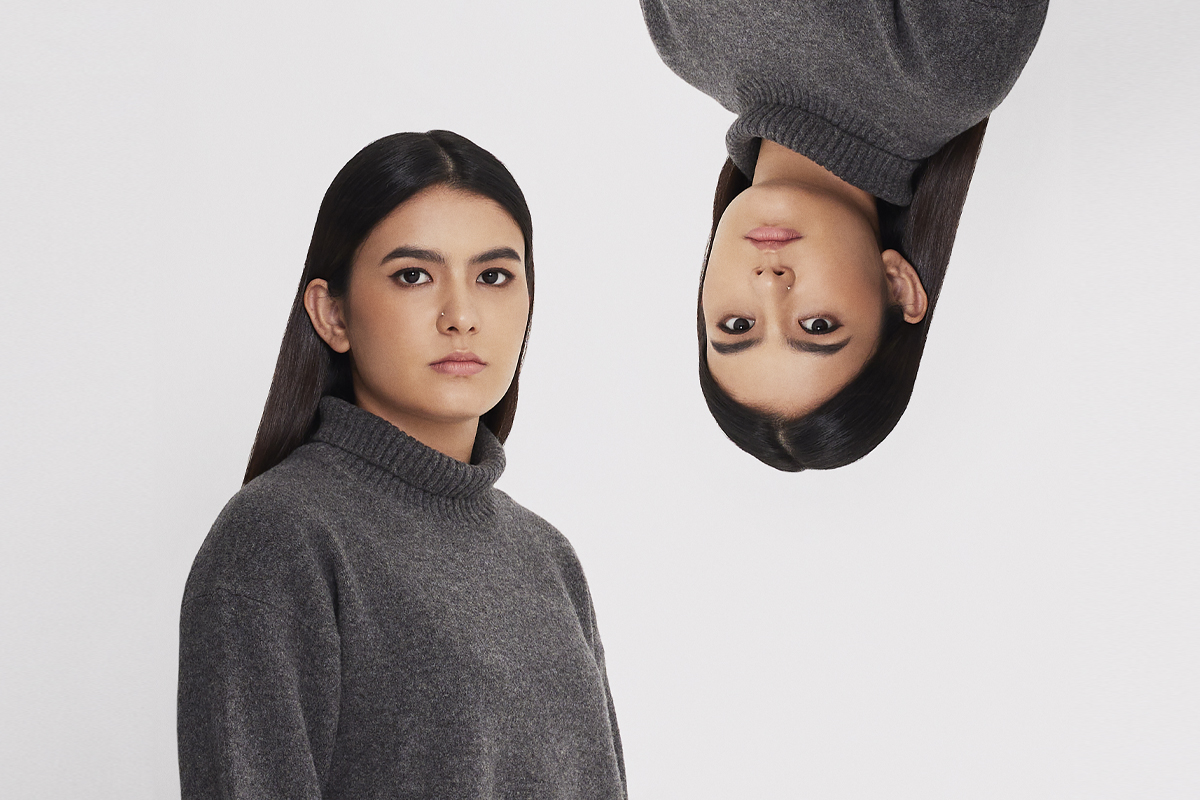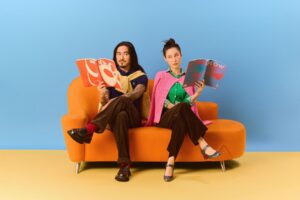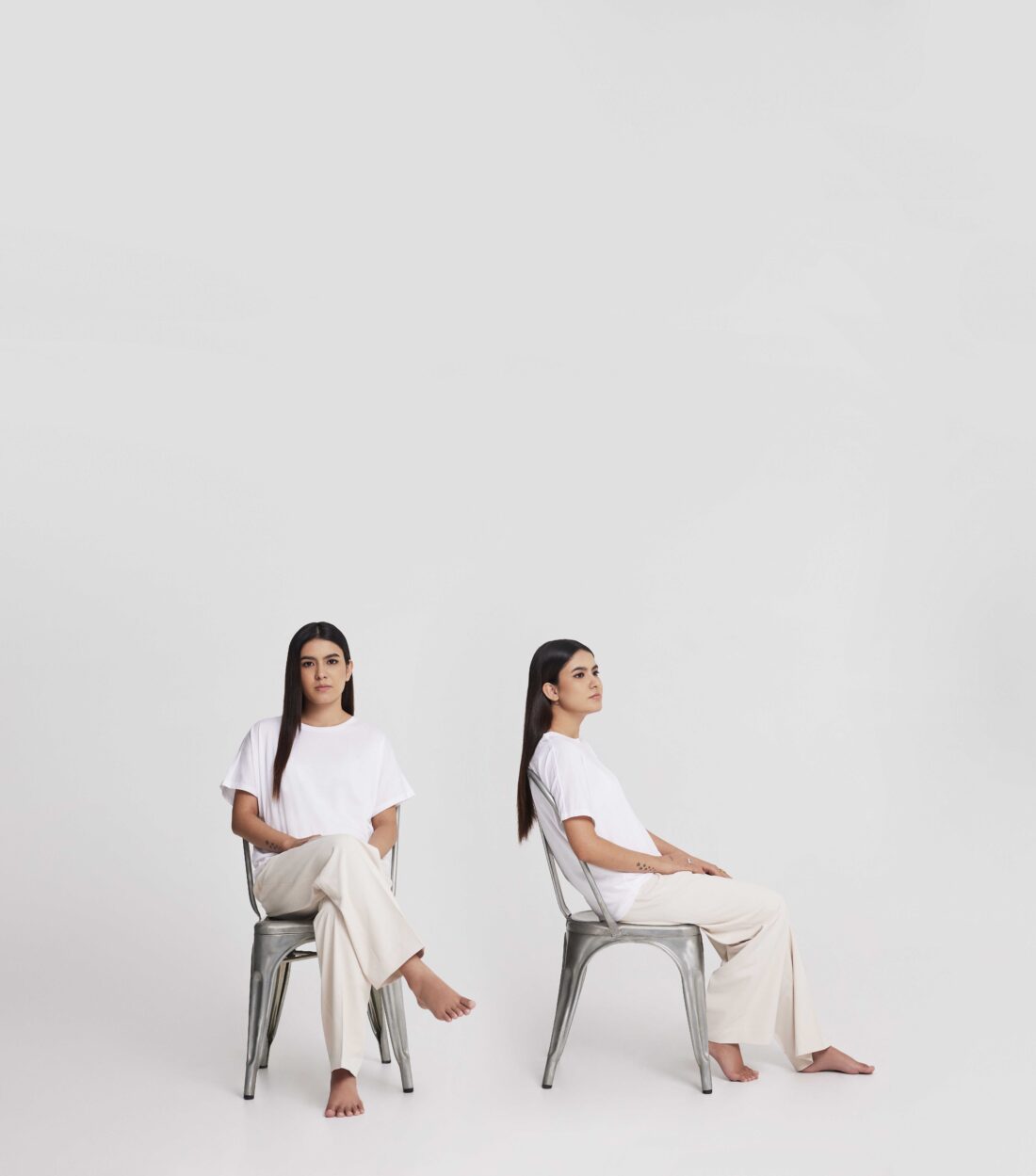Parastoo is the name of the ‘swallow’ bird in Farsi. “It’s always migrating and moving and always travelling. This is the fate of migrants,” Saleh Sepas, the founder and director of Parastoo (and also Farzana’s brother-in-law) has stated. “It’s a type of bird that doesn’t have a specific home, but it also always appears in the spring, like new life,” elaborates Farzana.
Farzana’s new position was bestowed on her at a bittersweet cost: Saleh and his family had to leave abruptly as they received their resettlement papers. In August 2023, just days after his last show ‘Red Soil of Kabul’ was staged, Saleh, his wife Masooma (Farzana’s sister) and their three young children boarded a plane to the US. While it was great news that they could start their lives out of limbo, saying goodbye (and having to do so swiftly) was undoubtedly painful.
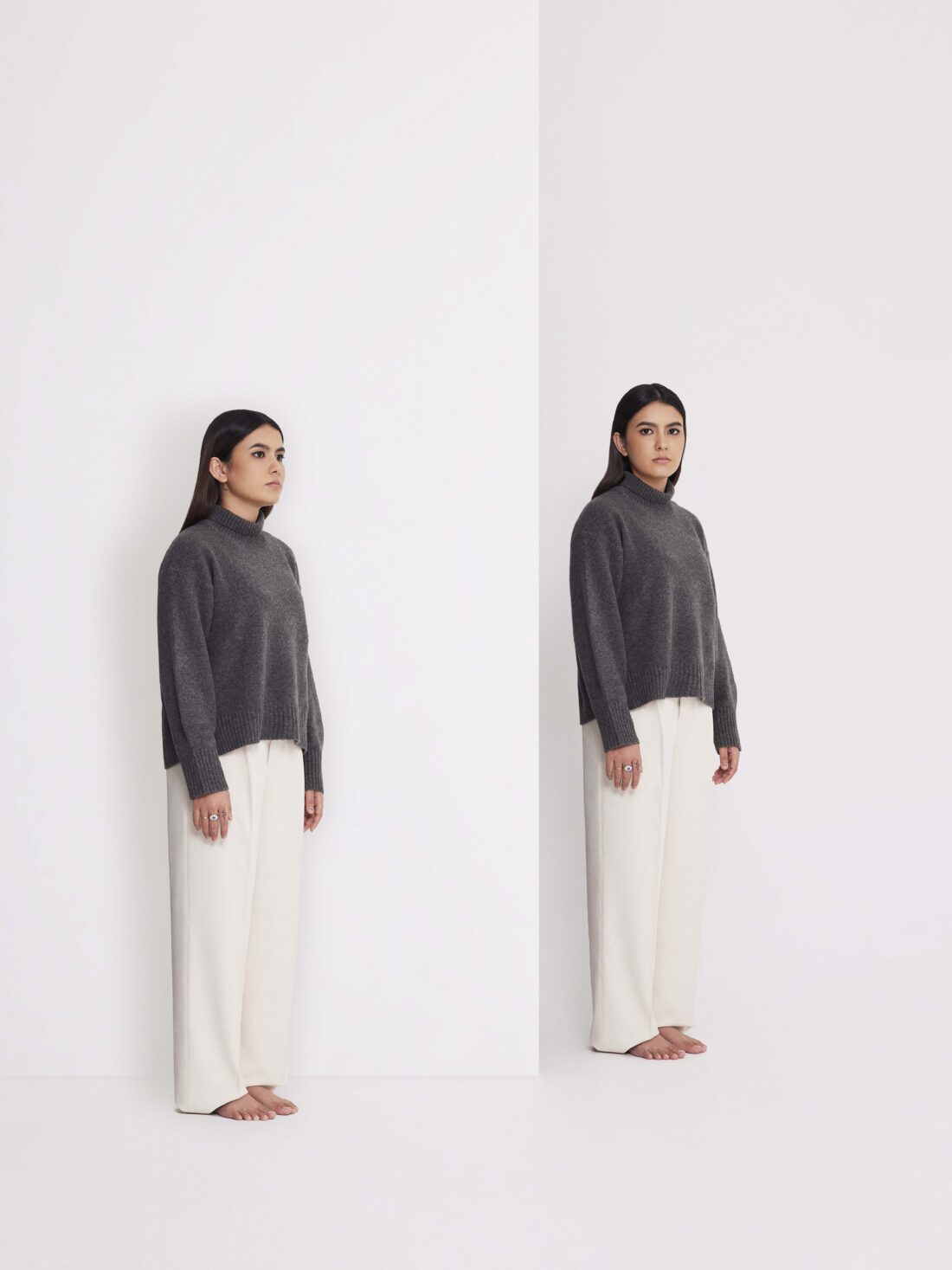
“He didn’t really have time to say goodbye to anybody,” Farzana tells me over a late lunch after the photoshoot for this story.
If you were a refugee, you would understand how it feels to leave all of a sudden; nobody likes to leave all of a sudden.
Saleh could only announce his departure on social media. He writes in the Instagram post, detailing the poignant dichotomy: “Ironically, while I am moving to a new place I will call home, I already feel that I am moving away from my actual home and family.”
It was a no-brainer for Saleh to pass the mantle over to Farzana, despite her age. Saleh had literally watched Farzana grow up as they had met back in Afghanistan before Saleh and Masooma got married. (Masooma is a decade older than Farzana.) It was only once Saleh was in KL and had established Parastoo that Farzana and Saleh started working closely together.
“We would go everywhere together – meetings, workshops, trainings. I’ve been working closely with Saleh because I also would translate for him,” she says. In an online call from his new home in the US, Saleh confirms that while he has moved to the other side of the world, he is still in constant contact with Farzana and guiding her to take the reigns on Parastoo’s unfinished projects. “We WhatsApp daily – text messages, voice notes, video calls.”
THE STAGE AS A SAFE SPACE
At a time that can already be confusing for most teenagers, the experience can be so much more debilitating for those who are stateless. Fleeing her homeland to arrive in Malaysia with no legal protections as a refugee, the uncertainty of her future and the limitations of her consequences were difficult for Farzana.
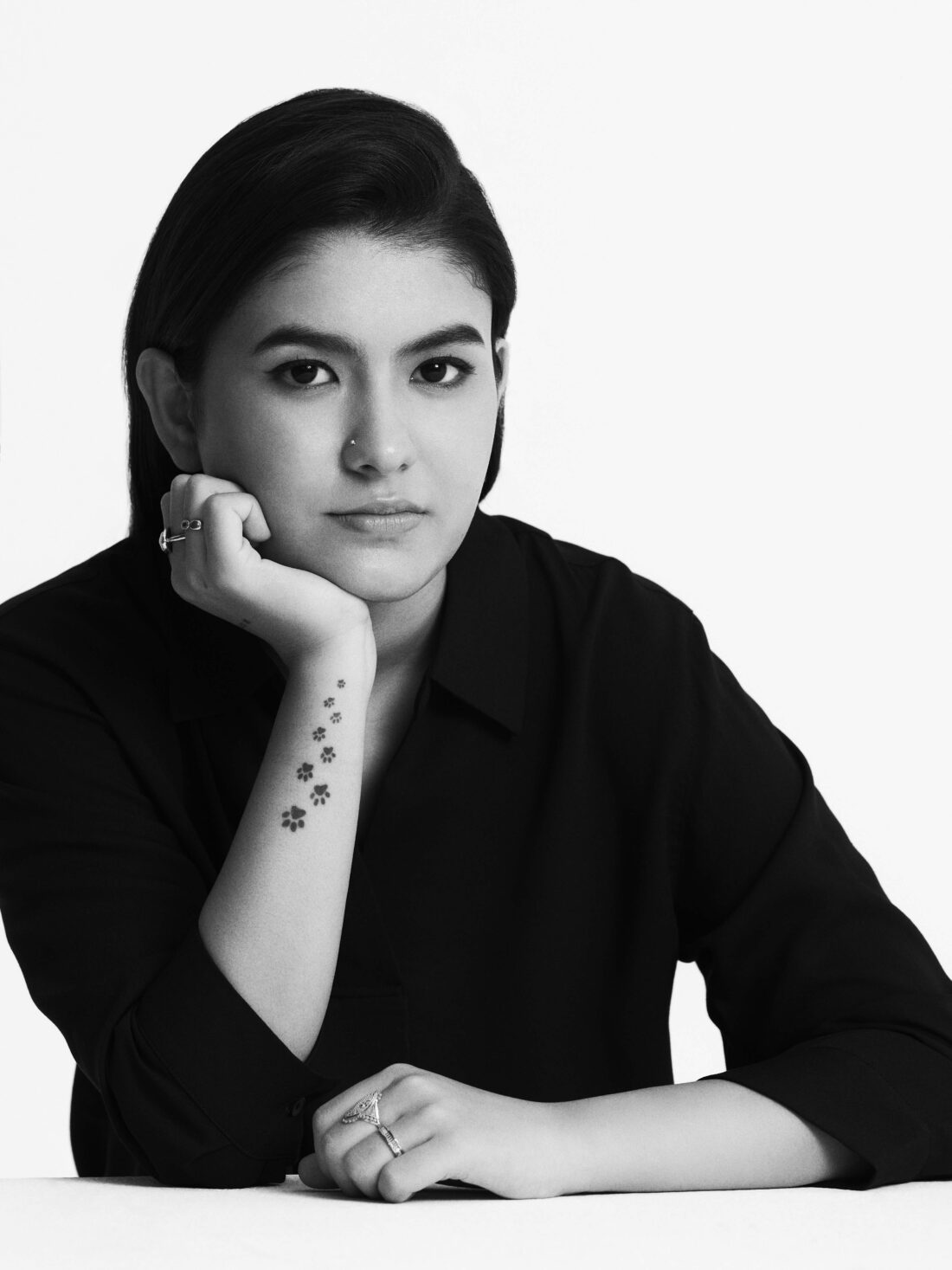
“There was a point in my life when I was 15 years old … where I really hated the fact I was a refugee,” shares Farzana. “I really wanted to be like a normal person, to be able to afford things, or be able to go to a proper school.” It was also around the same time where Saleh arrived in Malaysia and soon after was the burgeoning beginnings of Parastoo.
It started in 2018 when she got the chance to play the lead in ‘Screaming in Silence’, a show Saleh wrote and one of the biggest shows Parastoo had put together.
“Theatre was always a safe place for me,” she explains, relating it to walking in through the front door of your home after being out all day and breathing a sigh of relief. There’s no discrimination when on stage:
When I’m on stage, people at the end of the show don’t see me as a ‘refugee actress’, they see me for my talent and not because I’m a refugee and I need your help.
Self-described as an emotional person, Farzana is also someone who does not hold back when treated poorly. “I will speak up if you’re horrible to me. And when I speak out, you will see tears falling down my face even while I’m still trying to talk to you,” she admits. What others have freely said to her, as horrible as their words were, did not deter her – it only gave her more of an impetus to always speak up. This is exemplified by the methodology of the Theater of the Oppressed – where one’s artistic expression is nurtured with the aim to promote women’s empowerment among other things.
“In fact, the purpose of Parastoo is empowering refugees… and also being a voice for refugees who have no means to voice out,” explains Saleh in this Parastoo video introduction.
SPREADING PARASTOO’S WINGS
A community space and an empowerment tool in one, Parastoo is being built to give refugees a way to cope with their situation with the ability to tell their own stories.
“I’m really looking forward to our next year. We have a lot going on with shows we are staging, the leadership training, the classes,” she shares. “Any refugee can come to our training and workshops. We get funds for mental health workshops which run for a couple of days or for the Theater of the Oppressed training which goes for six months.”
“We teach them how to write a show, how to do research, how to produce a show and how to direct a show,” she details, adding that those mental health workshops are also held for other organisations as well. All the tools are given to refugees for them to build networks and grow within their community.
Given the nature of a refugee’s life in Malaysia, Farzana’s status remains in limbo – she has no idea when she will get resettled. This is also why they’ve decided to introduce Parastoo leadership, to be prepared for when she would need to pass it on to someone to continue Parastoo’s plans in Malaysia. But just like its name, Parastoo Theater does not have to remain in one location.
“Here, we are refugees. But wherever we resettle, we are no longer refugees and we will be able to make Parastoo a whole organisation – make this a huge theatre company where anyone can come and learn,” she enthuses. It’s clear that these are plans Saleh and her have been discussing for some time now.
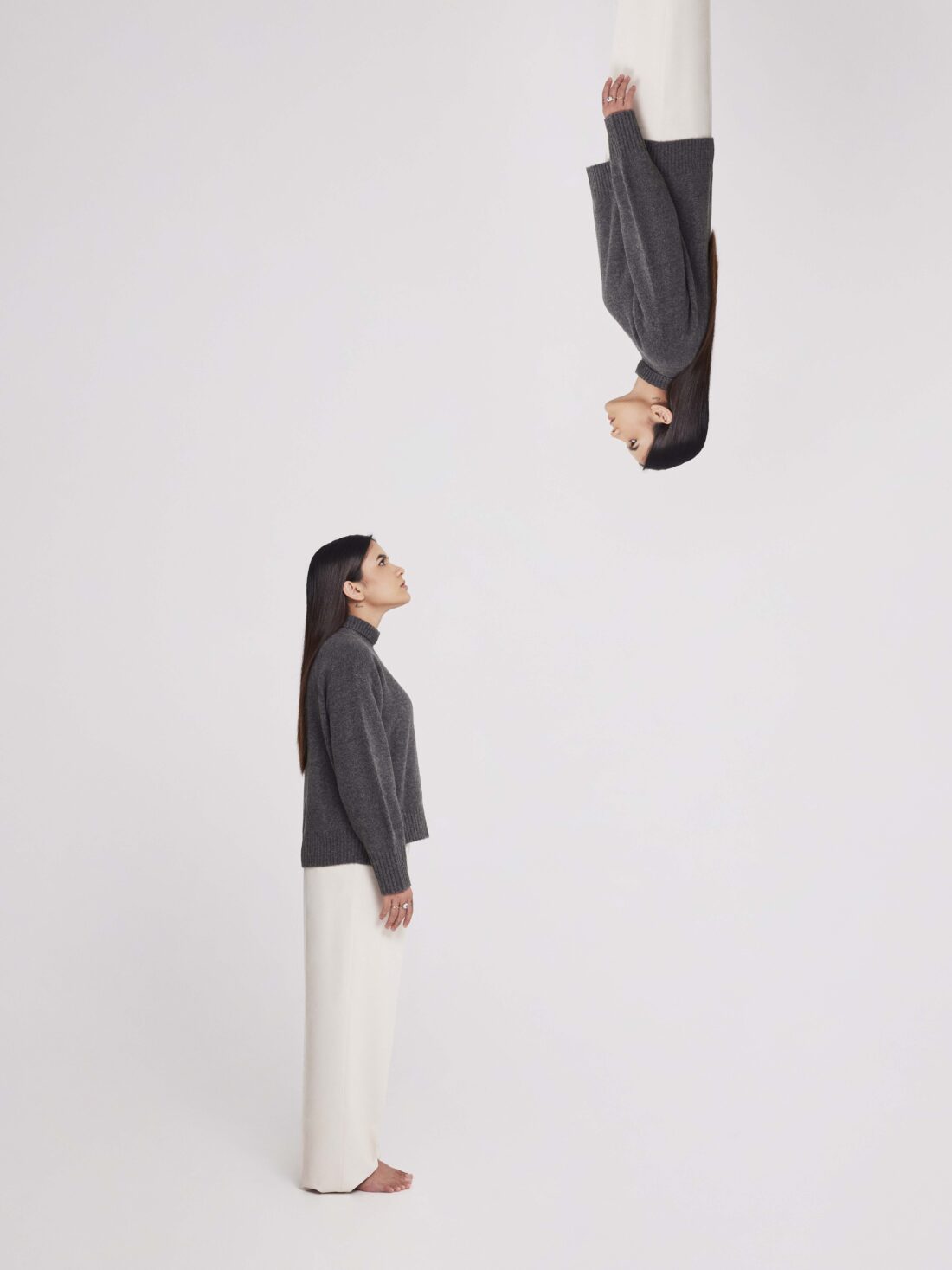
A few months after Saleh’s resettlement, Farzana’s mother and other siblings also left Malaysia after receiving confirmation on their resettlement to Adelaide, Australia. Once again, Farzana has had to grapple with separation and starting over, but this time it has come with some stability and happiness. Farzana has also started married life this year, with her husband who is also from Afghanistan.
Speaking as a newlywed visibly in love, she speaks candidly about living with her husband and their four cats. “Life is good and calm. It’s amazing even though it took us a while to get here,” she says.
What does the future look like? Well, for Farzana, her dreams are straightforward: “I really want to go to college or university, learn and get a diploma, study performing arts and act professionally. I feel like with the years of experience, I can already act but I want to also study it.”
With that, while Farzana and her husband wait for confirmation on their resettlement, there is still much to do at Parastoo. And that begins with bringing refugee stories and bridging the divide with Malaysian audiences through theatre.
For more information on Parastoo Theater and their upcoming stage shows, follow them on IG here, and check out their website here. To learn more about Saleh’s journey as the founder and playwright for Parastoo, click here for his story on FirstClasse.
A short documentary on Farzana’s life and trajectory as she grows into a stage actor and activist is currently in production. Also called Parastoo, the film is by Jennifer Macedo Yang and its anticipated release is in Winter 2024. Click here to learn more and donate here to help finish the film.
Photographer: Tommi Chu
Art Direction: Anson Siau (assisted by Mon Kai-Siong)
Location: Blink Studio, Kuala Lumpur.


